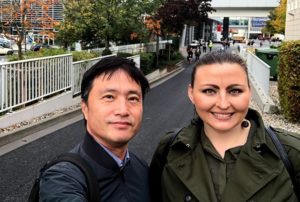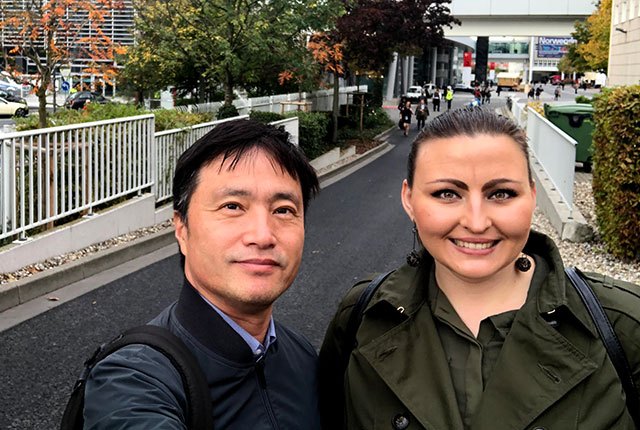For those who haven’t been in touch with Asia at all, I would say it is like the French Blue cheese – you either fall in love with it from the first bite, or you never get to understand why people like it. There is, however, one major difference – one more often is on the side of being in love rather than the other.
I didn’t have a clue about Asia when I started working at 1-Stop and neither had a clue about English or any Asian language. So far for the 3 and a half years, I have been working as an Executive Manager in the company, my journey has been full of lessons, new experiences, and new people every single day. And that, I should say is the best thing one can ask from a job, right?
A personal insight into the translation industry
Throughout the years I am working in the translation industry one thing I have noticed is how closely it reflects the world and its ups and downs. It is of course understandable once you take a careful look at it and the processes around us. The fact is that each and every bit of our world needs to be transmitted to others and with the variety of nations around there is no other way to do that but translation. All branches of the world’s economy are represented in the translation industry as fields for translation. Let’s take the current pandemic for example: due to it, there are sectors which have been rising constantly like health and life science, while others respectively travel or technology are going down.
The East and the West working together
We’ve all heard how different countries have different cultures. Now let me tell you about my first-hand experience on the matter. As an Executive Manager for Europe in our company, I have to work and connect with all other offices as well as to participate in a number of decision-making processes, which involve all management of the company. At the same time, I need to know very well the European understanding and expectations in every case. Most of our readers would know that a huge part of our resources is located in Asia due to the specifics of the languages. There is no way I could miss quite a few differences between the western working model and our Asian colleagues and when I’m saying this – I wonder if we should take some of their examples and learn from them. Here is what I am talking about:
Listen more, ask less
It always happens in our international meetings and even if you don’t know who is from where one will easily guess by the attitude of the people. We (Europeans) always tend to ask, argue, speak more, while my colleagues from China or Korea would most of the time keep silent. That is not due to a language barrier I must add. They just have this in their culture – they listen more and tend to be scarce on words but then I noticed, when they do speak it is with good reason and well thought over.
Hierarchy and experience gain respect
And that is valid for almost any Asian country. Age, experience, and the length you’ve been working in a company gain you respect and it is not necessarily the same in Europe or the US for that matter. The good thing is that at 1-Stop we tend to adopt some things from the Asian way and implement along with the European model, then we take the best from both worlds.

The business model of giving before taking
That is one thing I learned from our CEO Don Shin on our numerous business meetings and to be honest I am fascinated by it. Don always insists we first give before we take and this is how we do it. We always approach a potential business partnership with open eyes and heart. And what we will do is give up our knowledge and experience even before we know if there will be a mutual collaboration. Our philosophy is that we have to teach our potential partners and give them without asking anything in return. Then it will come back in its own way.
How to train a new bee
One thing that never ceases to amaze me is our company’s training process. That is something one rarely would see in large international companies. For me and my colleagues, we are just lucky to have the years of experience shared first hand. Actually, this is one of the secrets of how our company will keep the same philosophy for the years to come – we just pass the knowledge from person to person.
I can share numerous cases and examples of what I’ve learned so far from Asia and what I and my team actually teach our Asian colleagues. However, I’ll stop here and keep other stories for a future article. One thing I must add, though, is that I do believe that the future of our world’s economy lies in the common path of the East and West. To be able to strengthen this relationship we really need to be open to understanding and appreciating the other side.
